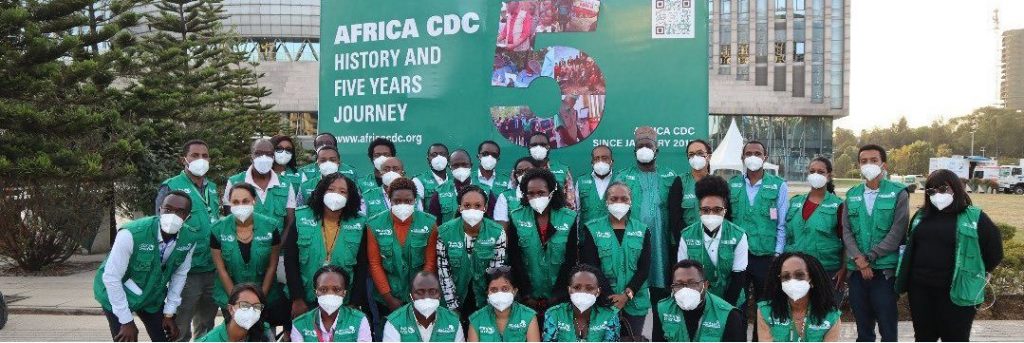
Emerging diseases pose significant threats to global health security, necessitating robust outbreak response strategies. In an increasingly interconnected world, the rapid spread of infectious diseases demands effective measures to prevent, detect, and control outbreaks. This article explores the importance of global health security in combating emerging diseases, delving into various aspects such as the who, what, when, how to, pros and cons, alternatives, step-by-step approaches, comparisons, and tips for enhancing outbreak response.
Who is Responsible for Global Health Security?

Global health security is a shared responsibility among international organizations, governments, healthcare systems, and individuals. Several key entities play crucial roles in strengthening outbreak response:
- World Health Organization (WHO): As the specialized agency for health within the United Nations system, WHO takes a central role in coordinating international efforts to prevent and respond to public health emergencies. It provides technical guidance, capacity-building support, and promotes collaboration among member states.
- National Governments: Each country has the responsibility to safeguard its population’s health and implement measures to prevent and control disease outbreaks. Governments allocate resources, establish surveillance systems, and coordinate with international partners to enhance global health security.
- Healthcare Systems: Hospitals, clinics, laboratories, and healthcare professionals form the frontline defense against emerging diseases. They play pivotal roles in early detection, diagnosis, treatment, and containment of outbreaks.
- Research Institutions: Scientists and researchers contribute to global health security by conducting studies on emerging diseases, developing diagnostic tools, vaccines, and therapeutics, and disseminating knowledge to inform outbreak response strategies.
What is Global Health Security and Why Does it Matter?
Global health security refers to the collective actions taken to prevent, detect, respond to, and recover from public health threats. It encompasses a range of measures aimed at minimizing the impact of infectious diseases on populations and economies. The importance of global health security can be understood through the following aspects:
- Prevention: By investing in disease surveillance, early warning systems, and public health infrastructure, we can identify potential outbreaks before they escalate. Preventive measures such as vaccination campaigns, vector control, and sanitation practices are vital in reducing disease transmission.
- Detection: Rapid detection of outbreaks is crucial to implement timely response measures. Early warning systems, laboratory testing capabilities, and data sharing mechanisms enable swift identification of emerging diseases, facilitating containment efforts.
- Response: Coordinated and effective response strategies are essential in limiting the spread of emerging diseases. This includes deploying rapid response teams, establishing quarantine measures, providing medical care, and conducting contact tracing to break the chains of transmission.
- Collaboration: Global health security necessitates collaboration among countries, international organizations, and stakeholders. Sharing information, resources, and expertise strengthens outbreak response, enhances research capabilities, and promotes knowledge exchange.
- Socioeconomic Impact: Emerging diseases can have severe socioeconomic consequences, disrupting healthcare systems, economies, and livelihoods. Investments in global health security can mitigate these impacts, safeguarding both human lives and economic stability.
When Should Global Health Security Measures Be Implemented?
Global health security measures should be implemented proactively and continuously to ensure preparedness for emerging diseases. Key moments that demand heightened attention include:
- Disease Surveillance: Continuous monitoring of infectious diseases is critical to detect unusual patterns or novel pathogens. Early detection enables a rapid response, preventing widespread outbreaks.
- International Travel and Trade: With increased global mobility, infectious diseases can rapidly cross borders. Strengthened health security measures at points of entry, including airports and seaports, help identify and contain potential threats.
- Zoonotic Events: Many emerging diseases originate in animals before spillover into humans. Monitoring wildlife populations, implementing One Health approaches, and enhancing veterinary surveillance can help identify zoonotic events and prevent outbreaks.
- Rapid Response to Outbreaks: Once an outbreak occurs, immediate response measures are vital. Timely deployment of healthcare personnel, logistics support, and coordination among stakeholders can help contain the outbreak and save lives.
How to Enhance Global Health Security?

Enhancing global health security requires a multifaceted approach involving various stakeholders. Here are some strategies to strengthen outbreak response for emerging diseases:
- Strengthening Healthcare Systems: Investing in robust healthcare systems that have adequate resources, trained personnel, and resilient infrastructure is crucial for effective outbreak response. This includes bolstering laboratory capacities, improving surveillance systems, and ensuring access to essential medical supplies.
- Promoting International Collaboration: Collaboration among countries, organizations, and researchers facilitates knowledge sharing, capacity building, and joint research efforts. Initiatives such as the Global Health Security Agenda (GHSA) foster partnerships to enhance preparedness and response capabilities.
- Prioritizing Research and Development: Funding research on emerging diseases is imperative to develop diagnostic tools, vaccines, therapeutics, and innovative interventions. Governments and international organizations should allocate resources to accelerate scientific advancements in outbreak control.
- Public HealthEducation and Awareness: Public health education plays a vital role in enhancing global health security. Raising awareness about emerging diseases, their modes of transmission, and preventive measures empowers individuals and communities to take proactive actions. Health literacy campaigns, community engagement, and accessible information channels contribute to better outbreak preparedness.
- Strengthening Surveillance Systems: Robust surveillance systems are essential for early detection and response to emerging diseases. This includes establishing real-time reporting mechanisms, integrating data from various sources, and leveraging advanced technologies such as genomic surveillance and artificial intelligence for rapid analysis.
- Building Resilient Supply Chains: Ensuring a consistent supply of essential medical equipment, medicines, and vaccines is critical during outbreaks. Governments and international organizations should collaborate to develop resilient supply chains that can quickly mobilize and distribute necessary resources during emergencies.
Pros and Cons of Global Health Security Measures
Global health security measures have both advantages and challenges. Let’s examine some pros and cons:
Pros:
- Early Detection and Response: Robust global health security measures enable early detection and prompt response to emerging diseases, reducing the risk of widespread outbreaks.
- Collaborative Efforts: International collaboration strengthens outbreak response capabilities by sharing expertise, resources, and best practices. Joint efforts lead to faster scientific advancements and more effective control strategies.
- Preparedness for Future Threats: Investing in global health security enhances overall preparedness for future disease threats, ensuring healthcare systems and infrastructure are better equipped to respond.
- Socioeconomic Stability: Effective outbreak response minimizes the socioeconomic impact of emerging diseases, preserving economies, and protecting livelihoods.
Cons:
- Resource Constraints: Implementing comprehensive global health security measures requires significant financial and logistical resources, which may strain budgets and capacities, particularly in low-income countries.
- Balancing Privacy and Surveillance: Enhanced disease surveillance can raise concerns about privacy and data protection. Striking a balance between public health needs and individual privacy rights is a challenge.
- Variations in Global Standards: Varying capacities and standards among countries can create gaps in global health security, potentially allowing outbreaks to spread across borders.
- Overreliance on International Organizations: Heavy reliance on international organizations for coordination and response can lead to delays or inefficiencies during crises.
Alternatives to Global Health Security Measures
While global health security measures are essential, alternative approaches can complement these efforts. Some alternatives include:
- Community-Based Surveillance: Empowering communities to actively participate in disease surveillance and early detection through local networks and reporting systems.
- One Health Approach: Integrating human, animal, and environmental health perspectives to address the underlying factors contributing to the emergence and spread of diseases.
- Strengthening Primary Healthcare Systems: Investing in primary healthcare infrastructure and capacity-building to improve disease detection and response at the community level.
- Research and Development Partnerships: Encouraging collaboration between public and private sectors, academia, and research institutions to accelerate innovation in diagnostics, vaccines, and therapeutics.
Step-by-Step Approach to Enhance Outbreak Response
To enhance outbreak response for emerging diseases, the following step-by-step approach can be followed:
- Assess Vulnerabilities: Conduct a comprehensive assessment of existing healthcare systems, surveillance capabilities, and laboratory infrastructure to identify gaps and vulnerabilities.
- Develop National Action Plans: Based on the assessment, develop national action plans for strengthening outbreak response, focusing on areas such as surveillance, laboratory capacity, human resources, and risk communication.
- Build Collaborative Networks: Foster partnerships with international organizations, neighboring countries, and relevant stakeholders to share expertise, resources, and best practices.
- Train and Equip Healthcare Workforce: Provide specialized training to healthcare professionals on outbreak detection, infection control, and management protocols. Ensure access to necessary personal protective equipment (PPE) and medical supplies.
- Establish Rapid Response Teams: Form multidisciplinary rapid response teams capable of deploying quickly during outbreaks. These teams should include epidemiologists, clinicians, laboratory experts, and logistics personnel.
- Strengthen Surveillance Systems: Enhance surveillance systems by integrating multiple data sources, implementing real-time reporting mechanisms, and leveraging technology for efficient data analysis.
- Conduct Simulation Exercises: Regularly conduct simulation exercises to test outbreak response plans, identify gaps, and improve coordination among different stakeholders.
- Invest in Research and Development: Allocate resources for research on emerging diseases, diagnostics, vaccines, and therapeutics. Foster collaborations between researchers, institutions, and industry partners.
- Promote Risk Communication: Develop clear and effective risk communication strategies to disseminate accurate information, address misconceptions, and engage communities in outbreak response efforts.
- Monitor and Evaluate: Continuously monitor the effectiveness of implemented measures, evaluate response outcomes, and make necessary adjustments based on lessons learned.
Comparing Global Health Security Approaches
Different countries and regions may adopt varying approaches to global health security. A comparative analysis of these approaches can shed light on effective strategies and best practices. For example:
- Country A: Country A has a centralized healthcare system with a strong emphasis on government-led initiatives. They invest heavily in disease surveillance and have well-established rapid response teams. However, there may be challenges in resource allocation and coordination between different levels of the healthcare system.
- Country B: Country B takes a decentralized approach, empowering local communities and healthcare facilities to play an active role in outbreak response. They prioritize primary healthcare strengthening and community-based surveillance. This approach promotes early detection and engagement at the grassroots level but may face challenges in standardizing practices across diverse regions.
- Regional Collaboration: Some regions adopt collaborative approaches, where neighboring countries work together to enhance outbreak response. They establish joint surveillance systems, share resources and expertise, and conduct cross-border training exercises. This fosters regional resilience and enables a coordinated response to shared health threats.
- Global Initiatives: International organizations such as WHO and the Global Health Security Agenda (GHSA) promote global collaboration and standardization of outbreak response measures. They facilitate information sharing, capacity building, and coordination among nations. These initiatives help create a unified front against emerging diseases but may face challenges in aligning priorities and capacities across diverse countries.
Tips for Effective Outbreak Response
Enhancing outbreak response requires attention to various factors. Here are some tips for effective outbreak response:
- Early Detection: Implement robust surveillance systems that enable early detection and rapid response to emerging diseases. Invest in real-time data analysis, digital tools, and innovative technologies to enhance detection capabilities.
- Preparedness Planning: Develop comprehensive national action plans for outbreak response, considering various scenarios and involving all relevant stakeholders. Regularly review and update these plans based on lessons learned from simulations and real-world outbreaks.
- Communication and Engagement: Prioritize clear and timely risk communication to the public, healthcare workers, and policymakers. Use multiple channels to disseminate accurate information, address concerns, and engage communities in outbreak response efforts.
- Collaboration and Coordination: Foster collaboration among local, national, and international stakeholders. Establish effective coordination mechanisms to streamline communication, resource sharing, and decision-making processes.
- Capacity Building: Invest in training healthcare workers on outbreak detection, infection control, and management protocols. Strengthen laboratory capacities for rapid diagnostics, surveillance, and research.
- Research and Innovation: Support research initiatives to develop better diagnostics, vaccines, and therapeutics for emerging diseases. Promote innovation in outbreak response tools, technologies, and strategies.
- Lessons Learned and Adaptability: Continuously evaluate outbreak response efforts, learn from successes and failures, and adapt strategies accordingly. Embrace a culture of continuous improvement and flexibility in the face of evolving disease threats.
The Best Approach for Global Health Security
The best approach for global health security is one that combines several key elements. It should prioritize:
- Collaboration: Effective global health security requires collaboration among nations, international organizations, researchers, and communities. Sharing knowledge, resources, and responsibilities is vital for a unified and coordinated response.
- Prevention and Preparedness: Investing in preventive measures, strong healthcare systems, and robust surveillance capabilities forms the foundation for effective outbreak response. Early detection and preparedness planning can significantly mitigate the impact of emerging diseases.
- Research and Innovation: Advancements in diagnostics, vaccines, and therapeutics are essential for combating emerging diseases. Governments, research institutions, and industry partners should prioritize research and innovation to stay ahead of evolving threats.
- Community Engagement: Engaging communities in outbreak response efforts fosters trust, improves compliance with public health measures, and enhances early detection. Empowering individuals with accurate information and involving them in decision-making processes is crucial for successful outcomes.
- Sustainable Financing: Adequate and sustained financing is necessary to support global health security efforts. Governments, international organizations, and donors should prioritize investments in infrastructure, capacity building, and research to ensure long-term preparedness.
Conclusion
In an interconnected world, global health security plays a critical role in preventing, detecting, and responding to emerging diseases. By prioritizing prevention, early detection, and collaborative efforts, we can enhance outbreak response capabilities. Strengthening healthcare systems, promoting research and innovation, engaging communities, and investing in sustainable financing are key pillars of effective global health security. Together, these measures contribute to safeguarding public health, reducing the socioeconomic impact of outbreaks, and protecting populations from the threat of emerging diseases.
FAQs (Frequently Asked Questions)
- Q: What are some examples of emerging diseases?
- A: Emerging diseases include diseases like SARS-CoV-2 (COVID-19), Ebola, Zika virus, Middle East Respiratory Syndrome (MERS), and H5N1 avian influenza.
- Q: How does global health security impact economic stability?
- A: Global health security helps prevent widespread outbreaks that can disrupt healthcare systems, trade, tourism, and supply chains, thus preserving economic stability.
- Q: What is the role of technology in global health security?
- A: Technologyplays a crucial role in global health security. It can aid in disease surveillance through real-time data analysis, early warning systems, and digital tools for reporting and monitoring. Technology also supports research and innovation, such as the development of rapid diagnostics, telemedicine, and digital contact tracing apps. Additionally, it facilitates communication and information sharing among stakeholders, enabling more efficient coordination and response efforts.
- Q: How does global health security address zoonotic diseases?
- A: Global health security recognizes the interconnections between human, animal, and environmental health. The One Health approach is employed to understand and address the factors contributing to zoonotic diseases. This includes monitoring wildlife populations, enhancing veterinary surveillance, promoting responsible animal farming practices, and improving collaboration between human and animal health sectors.
- Q: What are some global initiatives for enhancing global health security?
- A: Examples of global initiatives include the World Health Organization’s International Health Regulations (IHR), the Global Health Security Agenda (GHSA), and the Coalition for Epidemic Preparedness Innovations (CEPI). These initiatives aim to strengthen international cooperation, capacity building, and research collaboration to enhance global health security.
- Q: Why is public health education important in global health security?
- A: Public health education plays a vital role in global health security by raising awareness about emerging diseases, their modes of transmission, and preventive measures. Educating individuals and communities empowers them to take proactive actions, follow recommended guidelines, and participate in outbreak response efforts. Health literacy campaigns and community engagement promote a culture of preparedness and contribute to effective outbreak control.
- Q: What lessons have been learned from past outbreaks in strengthening global health security?
- A: Past outbreaks, such as the Ebola epidemic in West Africa and the H1N1 influenza pandemic, have highlighted the importance of early detection, rapid response, and international collaboration. Lessons learned include the need for improved surveillance systems, stronger healthcare infrastructure, better coordination among stakeholders, and increased investment in research and development. These experiences have informed strategies to enhance global health security and shape policies for future outbreak preparedness.
- Q: How does global health security contribute to equity in healthcare?
- A: Global health security promotes equity by ensuring that resources, expertise, and support are available to all countries, regardless of their economic status. It aims to strengthen healthcare systems in low-income countries, build capacity, and facilitate access to diagnostics, vaccines, and therapeutics. By addressing health threats collectively, global health security endeavors to reduce health disparities and promote equitable access to essential services for all populations.
- Q: Can global health security measures also address non-infectious diseases?
- A: While global health security primarily focuses on infectious disease outbreaks, some measures can indirectly impact non-infectious diseases as well. Strengthening healthcare systems, promoting health education, and improving surveillance and response capacities can contribute to overall health system resilience and better management of non-communicable diseases, emergencies, and other health challenges.
- Q: What role do individuals play in global health security?
- A: Individuals have a crucial role in global health security. By adhering to public health guidelines, practicing good hygiene, seeking timely medical care when needed, and participating in vaccination campaigns, individuals can contribute to the prevention and control of emerging diseases. Additionally, individuals can stay informed, raise awareness, and advocate for strong public health measures and investments in global health security.



